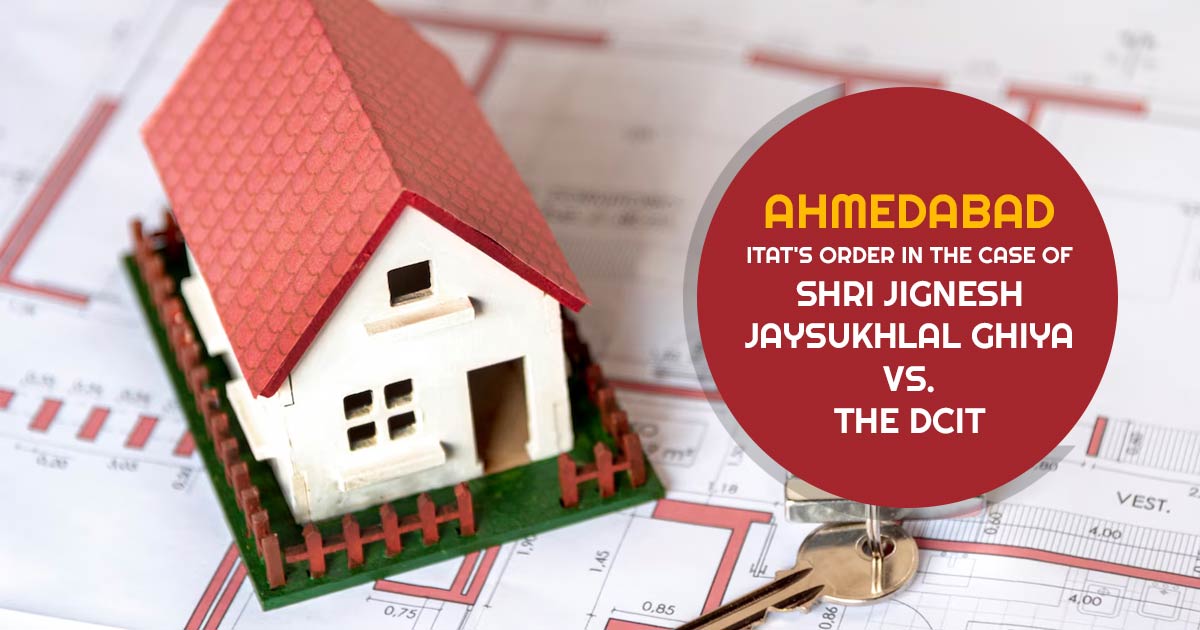
Tax deduction u/s 54 of Income Tax Act 1961 ( ITA ) is permissible even if proceeds from the sale of old property are not reinvested in the acquisition of new asset/property, the Ahmedabad Bench of Income Tax Appellate Tribunal (ITAT) ruled.
The taxpayer, Jignesh Jaysukhlal, owns a residential property, which he decided to sell.
The property sale is directed at capital gains. Asking to reinvest such gains in a new residential property, the taxpayer has started the new house construction.
But the purchase of the land has been achieved earlier on which the house has been made, and before the sale of the original property the construction has started.
Also Read: Full Process of Income Tax Return Filing without Software
On tax return filing, the taxpayer asserted a deduction u/s 54 of ITA. The same section permits an exemption from the capital gains tax if the gains are reinvested in the purchase or construction of another residential property within the said time duration: It is mandated to purchase the new property within 1 year before or two years post the sale or constructed within 3 years after the sale.
During the scrutiny of the assessee’s returns, the Assessing Officer (AO), disallowed the claimed deduction under Section 54 of ITA.
AO claimed that as the construction of the new house has been started before the sale of the original property the exemption u/s 54 must not be allotted.
AO considered that the law intended for the new house to be made after the sale only, using the received funds via the sale.
AO noted that the land cost on which the new house was made must not be covered under the exemption calculation, stating that the cost of the construction, excluding the land must be regarded for the deduction u/s 54 of ITA.
The AO on the grounds of these inferences said that the capital gains to get levied to tax of the taxpayer, resulting in a higher tax obligation.
The taxpayer dissatisfied with the AO’s interpretation appealed the decision to the Commissioner of Income Tax (Appeals), however, the appeal was dismissed, keeping the AO’s view.
Thereafter, the assessee filed an appeal with the Income Tax Appellate Tribunal (ITAT).
The ITAT bench Mr Senthil Kumar and Mr Narendra Prasad Sinha, upon examining the facts and the legal provisions, directed to the specific language of Section 54(1) of ITA which defines that the exemption is available if the new residential property is purchased within one year before or two years after the sale, or if it is constructed within three years after the sale.
It was noted by the tribunal that the law does not mandate that the construction of the new house should start merely after the sale of the original property. The main condition is that the construction must be finished within 3 years after the sale which was fulfilled in the same case.
Read Also: Easy to Compute Rental Income in Property for Tax Purposes
The tribunal also said that the objective of Section 54 of ITA is to encourage the reinvestment of the capital gains into the residential properties, and the timing of the start of the construction is not related as long as the house is finished in the mentioned duration.
In response to the Assessing Officer’s remark that the exemption should only apply to the amount of capital gains utilized for building the new house, the Tribunal added that Section 54 of the Income Tax Act does not mandate the use of particular sale proceeds for the acquisition or construction of the new property.
It was concluded that the exemption is on the grounds of the acquisition of a new residential property within the permitted duration, no matter whether the funds used are the direct proceeds from the sale.
Consequently, ITAT permitted the plea filed via the taxpayer asking the AO to grant the deduction u/s 54 of ITA and to remove the addition that has been incurred to the income of the taxpayer.
| Case Title | Shri Jignesh Jaysukhlal Ghiya Vs. The DCIT |
| Citation | ITA No. 324/Ahd/2020 |
| Date | 07.08.2024 |
| Counsel For Appellant | Shri Tu shar Hemani, Sr. Ad v. & S hri Parimalsinh B. Parmar, A.R. |
| Counsel For Respondent | Shri Hishikes Hement Patki, Sr.D.R. |
| Ahmedabad ITAT | Read Order |









